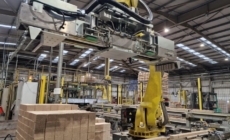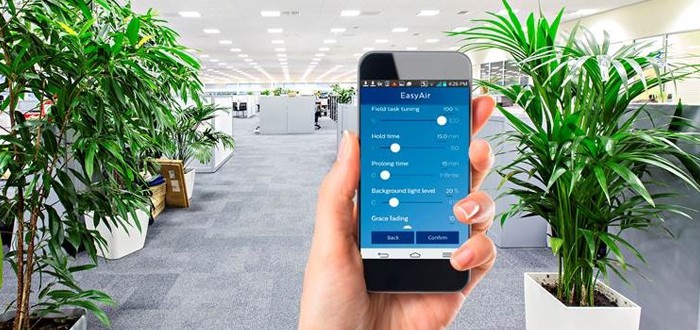-
Tower Launches Customer Sustainability Hub with Practical Tools for Lower-Impact Pharmaceutical Cold Chain - October 16, 2024
-
Six decision-making models for best practice WMS digital transformation - October 16, 2024
-
“Transforming Logistics: Precision and Purpose” – BIFA takes centre stage - October 15, 2024
-
JAMES JONES & SONS LTD EXPANDS ITS PALLETS & PACKAGING DIVISION THROUGH THE ACQUISITION OF HG TIMBER LTD - October 10, 2024
-
HUGO BECK EXPANDS MACHINE RANGE FOR E-COMMERCE, MAIL ORDER AND LOGISTICS - October 10, 2024
-
Winning Irish Exporter of the Year, Combilifts CEO Martin McVicar talks about the journey into the Global Market - October 8, 2024
-
JAMES JONES & SONS’ AUSTRALIAN SUBSIDIARY, HYNE GROUP, EXPANDS TO WESTERN AUSTRALIA - October 3, 2024
-
QUECLINK LAUNCHES SOLAR-POWERED ASSET TRACKER FOR TRAILERS AND CONTAINERS - October 3, 2024
-
Southgate Global Calls for Greater Health and Safety in the Warehouse Back Care Awareness Week - October 3, 2024
-
Nulogy to Expand Capabilities with Strategic Acquisition of Mingo Smart Factory - October 3, 2024
Smart Lighting Controls.
With the dawn of Smart & easy to use control systems in the home there is now a strong demand for equally flexible systems in commercial premises.
However the conception of a Smart system needs some smart thinking very early in the process to ensure the user has all the functionality they need & equally as important the ability to take control of it when the installers have finished.
Smart lighting controls should provide a wide range of benefits such as improving energy consumption, maximizing return on investment while also providing improved flexibility & control with fault reporting, energy consumption monitoring & emergency testing.
Most Energy Manager led projects are retrofit or refurbishment applications. Hence it is often the case existing cabling cannot accommodate the necessary BUS wiring & the cost of installing such a system can be prohibitive. Smart wireless solutions therefore allow a full range of control options using wireless data transmission thus eliminating the need to install additional wiring that would be required for a traditional DALI installation.
A wireless Smart installation simply requires a live, earth and neutral wiring connection and little need to modify your power cabling installation.
The other area that is potentially very costly for Smart systems has historically been the need for specialist engineers to commission, change & repair. Many of the latest systems have the ability to be commissioned by an app running on the resident engineers smart phone, thus avoiding costly calls outs for the simply day to day changes. This also reduces the risk that an unforeseen lapse of support from the original supplier in years to come will jeopardize the viability of the whole system within its lifetime.
A well planned smart system that is used & monitored correctly will deliver power savings. However to maximize total savings the smart control should always be partnered with high quality luminaires so as to reduce Facility Management, repair & testing regime costs that can be equally as significant. Hence this should be planned for as part of the system integration.
For further information please visit dextragroup.co.uk/dextra-group/wireless-solutions or email [email protected]
Dextragroup.co.uk































